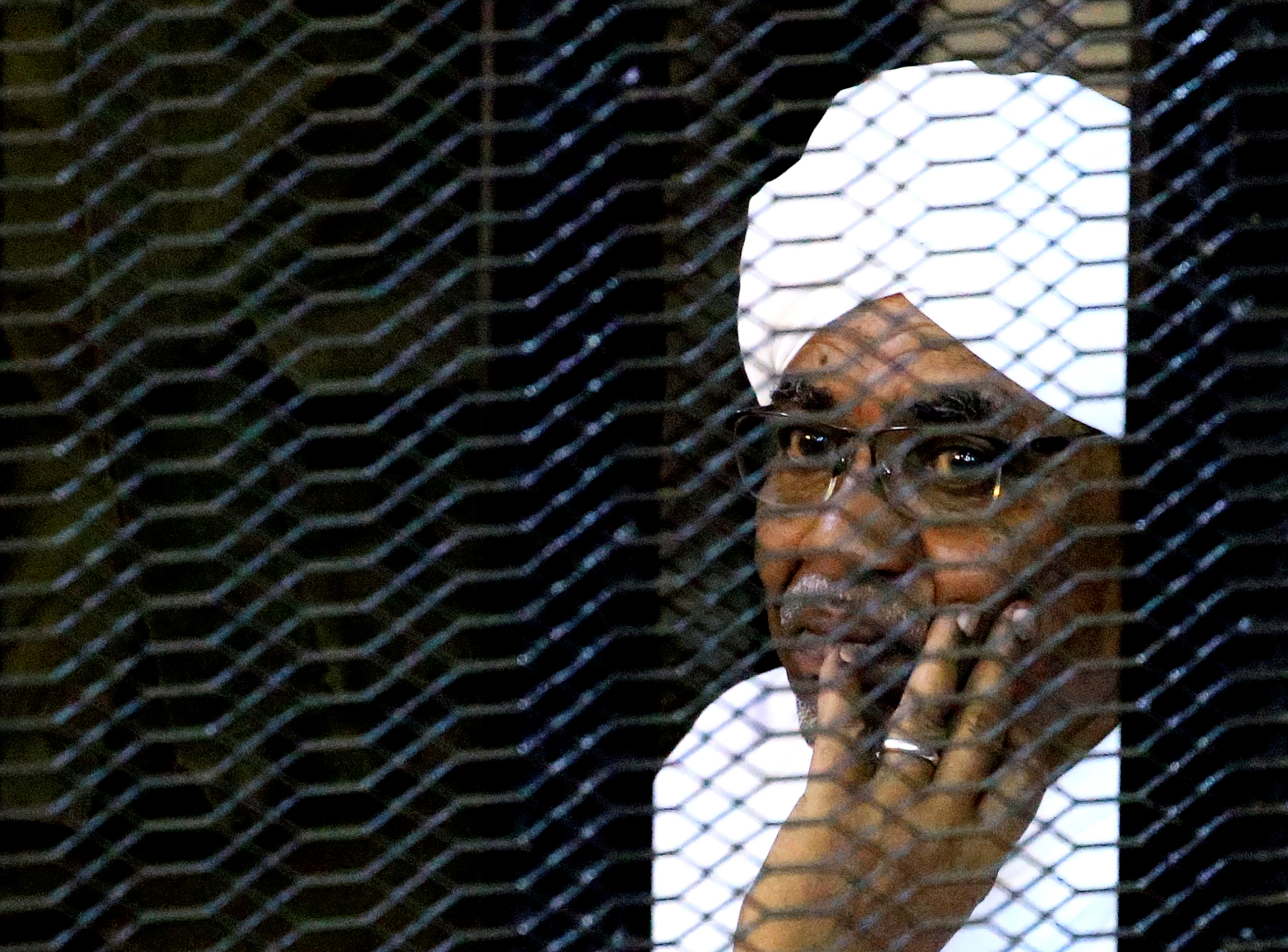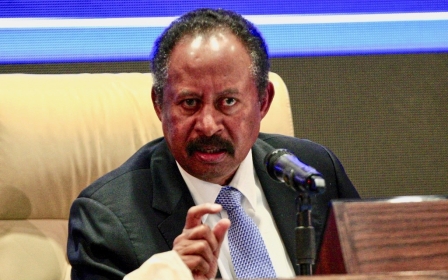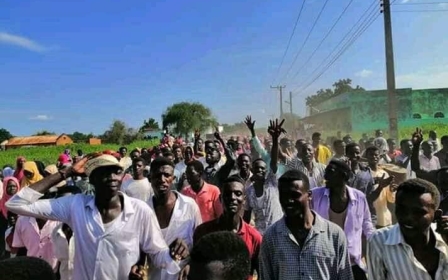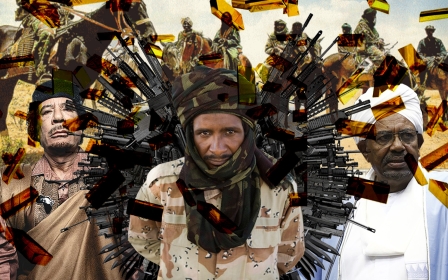Bashir's billions and the banks that helped him: Sudan fights to recover stolen funds

When he appeared in court last month, facing corruption charges brought after the end of his 30 years in power, Sudan’s former ruler Omar al-Bashir was faced with stacks of cash piled in front of him - some of the hundreds of millions of dollars seized from his home.
But far more money is believed to have been laundered away during his rule, stashed in banks abroad. In a Sudan invigorated by the months-long protest movement that removed Bashir in April, the fight to return the lost billions has begun.
Ibrahim Elbadawi, a former World Bank expert who has been named finance minister in Sudan's first civilian cabinet in three decades, has said recovering the missing money is a priority and he has already sought help from the United Nations.
Behind the gravest crimes...there is always money
- Lawyer Patrick Baudouin
Similar claims about returning embezzled money were made after Tunisia and Egypt's longtime rulers were deposed in 2011 - without success. But the new government, which shares power with the Bashir-era generals who eventually contributed to Bashir's ouster, is also being pushed by citizen-led campaigns.
Sudanese rights groups have begun working to reclaim the country's lost wealth by battling the international banks they accuse of facilitating corruption and even crimes against humanity.
New MEE newsletter: Jerusalem Dispatch
Sign up to get the latest insights and analysis on Israel-Palestine, alongside Turkey Unpacked and other MEE newsletters
According to diplomatic cables released by whistleblower group WikiLeaks in 2010, an International Criminal Court (ICC) investigation into Bashir over alleged genocide in the region of Darfur estimated he may have been holding up to $9bn in British banks.
Financiers and war crimes
The focus of this renewed momentum has so far landed on French bank BNP Paribas, which was tried in a US court in 2016 for its role as the main bank of Bashir’s government from 1997 to 2007 - a time when Sudan was under sanctions.
BNP Paribas agreed to pay almost $9bn to settle the charges, which also related to transferring money from Iran and Cuba, but the lawsuit was revived by the US Supreme Court in May.
The Sudanese victims involved in bringing that case did not receive any of that money, according to Masaad Mohamed Ali, the executive director of Sudanese campaigning group African Center for Justice and Peace Studies.
Now, the plan is to also push authorities to investigate the bank for financial crimes, including laundering money abroad and handling the proceeds of crime.
“We want to make the voices of the Sudanese victims heard through this complaint. To this day, they have been denied the possibility of justice, whether in Sudan, before the ICC or in the US,” Ali told Middle East Eye.
He said a coalition of Sudanese groups and French human rights group were leading the push against BNP Paribas, which stands accused by the Sudanese refugees of facilitating violence against them by providing services to the sanctioned government.
“The plaintiffs – all survivors of the crimes committed in Sudan – allege that by providing banking services to the Sudanese government, BNPP was complicit in the violations committed by the Sudanese military and security forces and Janjaweed militias,” he said.
He said the victims claimed the government was able to carry out human rights abuses because the bank facilitated oil sales, provided credit and helped the government reach foreign money markets.
The Paris-based International Federation for Human Rights (FIDH), which helped open the case, has also accused BNP Paribas of assisting crimes against humanity and genocide in Sudan’s western Darfur region, where the UN estimated 300,000 people have been killed since 2003.
“Behind the gravest crimes and human rights violations there is always money,” FIDH lawyer and president Patrick Baudouin said in a press release on 26 September.
“BNPP allowed the government to function, pay staff, military and security forces, make purchases abroad, all while Sudan was a pariah on the international scene for planning and committing crimes in Darfur.”
The banks who helped Sudan beat sanctions
BNP Paribas was not the only bank accused of handing the Sudanese government’s money prior to the lifting of sanctions in 2017.
Among the 2010 WikiLeaks releases were American cables that documented American diplomats being told by ICC prosecutor Luis Moreno-Ocampo that British bank Lloyds, partially publicly owned after being bailed out during the global financial crisis, “might be holding or knowledgeable of the whereabouts of his money”.
“Ocampo suggested if Bashir's stash of money were disclosed (he put the figure at possibly $9bn), it would change Sudanese public opinion from him being a 'crusader' to that of a thief,” the cable read.
Lloyds denied having any evidence that it held funds in Bashir’s name.
Also in 2010, British bank Barclays was fined almost $300m for "knowingly and wilfully" breaking sanctions to deal with Cuba, Iran and Sudan.
On 18 November 2018, Paris-based Societe Generale was also sanctioned for allegedly dealing with Sudan and other sanctioned countries.
African Center for Justice and Peace Studies director Massaad Ali said a coalition of human rights groups would be turning their attention to other international banks that they claim helped to facilitate violence in Sudan.
“We will definitely open more cases if we manage to get sufficient evidence that they have been working with the previous government of Sudan and gave the Sudanese government access to the financial system through transactions on behalf of sanctioned Sudanese entities, especially sanctions from the UN, the EU,” he stressed.
“When it comes to international law, banks and other corporations cannot be prosecuted at the ICC under international criminal law, but individual directors or staff members may be,” he warned.
Tracking the money
The coalition of Sudanese political forces that helped spearhead the protest movement that ousted Bashir, the Forces for Freedom of Change (FFC), has also promised to track down and hold accountable figures from Bashir’s government for corruption.
The FFC said it has plans to begin interviewing witnesses in the coming month.
“Some of the former ruling party’s leading members and government officials...who are accused of corruption have escaped,” said FFC spokesman Wagdi Salih. “But we will track them inside and outside the country.”
This article is available in French on Middle East Eye French edition.
Middle East Eye delivers independent and unrivalled coverage and analysis of the Middle East, North Africa and beyond. To learn more about republishing this content and the associated fees, please fill out this form. More about MEE can be found here.




